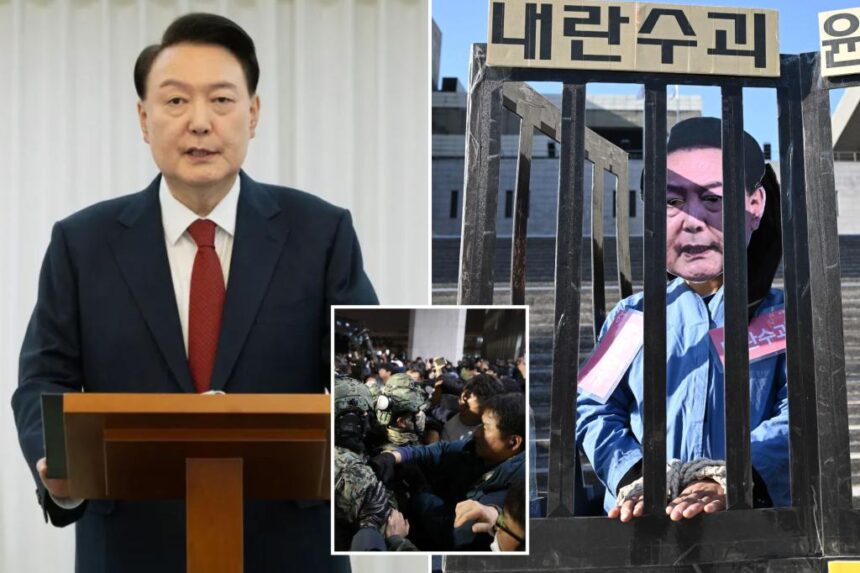South Korean investigators have taken a significant step in seeking an arrest warrant for suspended President Yoon Suk Yeol following the controversial imposition of martial law earlier this month. This marks the first time an incumbent president in South Korea has faced such action.
Yoon has been unresponsive to summons for questioning by the police and the Corruption Investigation Office for High-ranking Officials, who are conducting a joint investigation to determine whether the martial law declaration on December 3 constituted insurrection. Despite multiple attempts by the police to raid the presidential office as part of the investigation, they have been unsuccessful.
The decision on whether to issue an arrest warrant for Yoon will now rest with a Seoul court. Insurrection is one of the few charges for which a South Korean president does not have immunity.
Yoon’s lawyer, Yoon Kab-keun, has described the arrest request as “unfair,” arguing that the anti-corruption agency does not have the authority to make such a decision. He maintains that declaring emergency martial law falls within the president’s authority.
Following his impeachment by parliament over the brief imposition of martial law, Yoon was suspended from his presidential powers. The decree was swiftly voted down by parliament after masked martial law troops entered the parliament, leading to a standoff with opposing staffers armed with fire extinguishers. The incident caused shock and concern both domestically and internationally.
A Constitutional Court trial is now underway to determine whether Yoon will be reinstated or permanently removed from office. The court has a 180-day timeline to reach a decision and held its first preparatory hearing recently, denying a request from Yoon’s lawyers for a postponement. The court has indicated that it will proceed expeditiously, with the next hearing scheduled for January 3.








